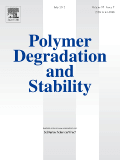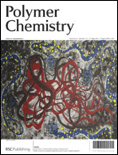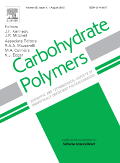
CELLULOSE
Scope & Guideline
Pioneering insights into polymers and plastics with cellulose.
Introduction
Aims and Scopes
- Cellulose Extraction and Modification:
Research on various methods to extract cellulose from natural sources and the subsequent chemical modifications to enhance its properties for specific applications. - Nanocellulose Applications:
Studies focused on the production and application of nanocellulose in fields such as biomedicine, food packaging, and sustainable materials. - Biocomposites and Biomaterials:
Development of cellulose-based composites that integrate other natural or synthetic materials to create sustainable, high-performance products. - Environmental Applications:
Exploration of cellulose and its derivatives in environmental contexts, such as wastewater treatment, pollution control, and biodegradable materials. - Functional Textiles:
Innovation in textile applications involving cellulose, including antimicrobial treatments, flame retardancy, and UV protection. - Thermoplastic and Biodegradable Materials:
Research on cellulose as a component in thermoplastic materials aimed at reducing reliance on fossil fuels and enhancing biodegradability. - Advanced Characterization Techniques:
Utilization of cutting-edge techniques for the characterization of cellulose structures and properties at the nanoscale.
Trending and Emerging
- Sustainable and Green Chemistry:
There is a growing emphasis on environmentally friendly processes for cellulose extraction, modification, and application, aligning with global sustainability initiatives. - Smart Textiles and Wearable Technology:
Research is increasingly focused on integrating cellulose into smart textiles, enhancing their functionality with features such as sensing capabilities and thermal management. - Nanotechnology and Nanomaterials:
The application of nanotechnology in cellulose research is trending, with studies investigating nanocellulose for use in high-performance materials and biomedical applications. - Biodegradable and Biocompatible Materials:
There is a surge in interest in developing biodegradable materials from cellulose for use in packaging, medical devices, and environmentally friendly products. - Cellulose in Energy Applications:
Emerging research explores the use of cellulose and its derivatives in energy storage and conversion technologies, particularly in the development of bio-based batteries and supercapacitors. - Functionalization and Composite Development:
Innovative approaches to functionalize cellulose and develop composites that integrate cellulose with other materials for enhanced performance are increasingly common.
Declining or Waning
- Traditional Pulping Processes:
Research on conventional pulping methods is declining as the focus shifts towards more sustainable and environmentally friendly alternatives, such as enzymatic and bio-based processes. - Petroleum-based Cellulosic Materials:
Interest in petroleum-derived cellulose products is waning in favor of bio-based materials that align with sustainability goals. - Single-component Cellulose Applications:
Studies solely focused on cellulose without considering its composites or blends are less frequent, as multifunctional materials gain prominence. - Basic Cellulose Chemistry:
Basic research on cellulose chemistry is becoming less common as applied research and interdisciplinary approaches take precedence, focusing on practical applications.
Similar Journals

POLYMER DEGRADATION AND STABILITY
Decoding the Dynamics of Polymer DegradationPOLYMER DEGRADATION AND STABILITY is a prestigious peer-reviewed journal published by Elsevier Sci Ltd, focusing on the critical aspects of polymer degradation and stability, which are essential for advancing the field of materials science. With an impressive impact factor and categorized in the top tier (Q1) across several disciplines including Condensed Matter Physics, Materials Chemistry, Mechanics of Materials, and Polymers and Plastics, this journal serves as a vital platform for researchers and professionals dedicated to uncovering the intricacies of polymer behavior under various environmental conditions. Established in 1979 and converging until 2024, it contributes significantly to the scientific dialogue surrounding polymer lifecycle and durability, essential for innovations in engineering and technology. Although it is not an open-access journal, POLYMER DEGRADATION AND STABILITY ensures access to cutting-edge research, providing invaluable insights and fostering academic collaboration for students, researchers, and industry practitioners alike.

Accounts of Materials Research
Advancing the frontiers of materials science.Accounts of Materials Research is a premier journal published by the American Chemical Society, focusing on the multidimensional field of materials science. With a robust impact factor and a commitment to open-access research, it serves as a vital platform for leading-edge discoveries from 2020 to 2024. The journal has rapidly ascended to the top quartile in multiple categories, including Chemical Engineering, Materials Chemistry, and Polymers and Plastics, demonstrating its significant influence within the academic community. Recognized by Scopus as a key resource—with remarkable rankings that place it in the 95th percentile of its field—Accounts of Materials Research is devoted to publishing high-quality, innovative research that addresses critical challenges in materials development and implementation. This journal is essential for researchers, professionals, and students seeking to stay informed about the latest advancements and collaborative opportunities within the interdisciplinary landscape of materials science.

Polymer Chemistry
Leading the Charge in Polymer Research ExcellencePolymer Chemistry is a premier peer-reviewed journal published by the Royal Society of Chemistry, focusing on cutting-edge research and developments in the field of polymer science. With its ISSN 1759-9954 and E-ISSN 1759-9962, this journal has established a significant impact within the academic community, as evidenced by its impressive Q1 ranking in areas such as Biomedical Engineering, Organic Chemistry, and Polymers and Plastics. Over its convergence period from 2010 to 2024, Polymer Chemistry has become an essential resource for researchers, professionals, and students, showcasing innovative studies that advance the understanding of polymer behavior and applications. The journal does not currently offer open access, allowing for a traditional but rigorous peer-review process ensuring high-quality publications. For those engaged in the rapidly evolving disciplines of biochemistry and bioengineering, Polymer Chemistry serves as a vital platform for disseminating influential findings and fostering interdisciplinary collaboration in a global context.

Materials Science-Medziagotyra
Bridging Research and Application in Materials ScienceMaterials Science-Medziagotyra is a prominent peer-reviewed journal dedicated to the field of materials science, published by Kaunas University of Technology in Lithuania. Since its transition to an Open Access model in 2012, it has facilitated broad dissemination of research findings, enhancing accessibility for researchers and professionals worldwide. This journal is indexed in Scopus and has consistently contributed to the academic community with a focus on innovative materials and their applications, ranking in the Q3 category of Materials Science (miscellaneous) as of 2023. With the responsibility of synthesizing substantial research from 2008 through 2024, Materials Science-Medziagotyra aims to bridge gaps in material research while fostering collaboration among scientists, students, and industry leaders. Its commitment to quality and rigor in scientific discourse underscores its relevance and importance in advancing the field.

Frontiers of Materials Science
Pioneering Discoveries in Advanced Materials and ApplicationsFrontiers of Materials Science is a groundbreaking journal dedicated to exploring advanced materials and their applications within the ever-evolving landscape of materials science. Published by HIGHER EDUCATION PRESS, this journal offers a crucial platform for scholars and practitioners seeking to disseminate innovative research findings that foster interdisciplinary collaboration. Since its inception in 2011, the journal has enjoyed a notable Q2 ranking in the category of Materials Science (miscellaneous) as of 2023, positioning it among the noteworthy publications in the field with a Scopus rank of #222 out of 463. While predominantly published in China, the journal is committed to open access principles, allowing global accessibility to cutting-edge research. With its comprehensive coverage spanning materials synthesis, characterization, properties, and applications, Frontiers of Materials Science not only serves as a repository for academia but also bridges the gap between research and industry, making it an indispensable resource for researchers, professionals, and students alike.

ADVANCES IN POLYMER TECHNOLOGY
Empowering Innovation in Polymer Science.ADVANCES IN POLYMER TECHNOLOGY is a premier open-access journal that has been at the forefront of innovation in the field of polymer science and engineering since its inception in 1981. Published by WILEY-HINDAWI, this journal serves as a vital platform for researchers, professionals, and students alike, facilitating the dissemination of cutting-edge research and applications in chemical engineering, organic chemistry, and polymers and plastics. With an impact factor that signifies its relevance and quality, the journal has achieved notable rankings, including Q2 in Chemical Engineering, and ranks within the top 30% of its category in multiple disciplines as of 2023. ADVANCES IN POLYMER TECHNOLOGY has embraced open-access publishing since 2019, ensuring that research findings are widely available to the global academic community. With its comprehensive coverage of topics related to polymer technology, this journal not only fosters scholarly exchange but also aims to bridge the gap between fundamental research and practical applications, thereby contributing significantly to advancements in materials science.

JOURNAL OF POLYMER SCIENCE
Fostering Collaboration in the Evolving World of PolymersJOURNAL OF POLYMER SCIENCE, published by WILEY, is a premier, open-access journal dedicated to advancing the field of polymer science and its applications. With an ISSN of 2642-4150, it offers a platform for high-quality research and innovative ideas, contributing significantly to the understanding of polymaterials and their functionalities. The journal is recognized for its exceptional impact within various categories, consistently achieving Q1 rankings in Materials Chemistry, Physical and Theoretical Chemistry, and Polymers and Plastics, demonstrating its influential presence in the academic community. As of 2023, it holds a distinguished position in Scopus rankings, underscoring its relevance and rigorous peer-review process. By facilitating open access to vital research findings, the JOURNAL OF POLYMER SCIENCE plays a crucial role in fostering collaboration and knowledge transfer among researchers, professionals, and students, paving the way for innovative developments in polymer applications and materials science.

Materials Today Advances
Connecting academia and industry through innovative research.Materials Today Advances is a premier open access journal, published by Elsevier, dedicated to disseminating cutting-edge research in the fields of Materials Science and Mechanical Engineering. Since its inception in 2019, the journal has quickly established itself within the academic community, achieving an impressive Q1 quartile ranking in both disciplines as of 2023, indicative of its high-impact contributions. Ranked #25 out of 672 in Mechanical Engineering and #46 out of 463 in General Materials Science according to Scopus, Materials Today Advances offers rigorous peer-reviewed articles that address the latest innovations and interdisciplinary approaches. Researchers, professionals, and students can benefit from the journal's open access model, ensuring widespread visibility and accessibility of groundbreaking findings. With the convergence of advanced materials research and practical applications, this journal represents a vital resource for those at the forefront of scientific discovery.

CELLULOSE CHEMISTRY AND TECHNOLOGY
Innovating Through Cellulose ChemistryCELLULOSE CHEMISTRY AND TECHNOLOGY, published by EDITURA ACAD ROMANE, is a pivotal journal in the fields of materials and organic chemistry. With a unique focus on cellulose and its derivatives, this journal explores innovative research and developments that contribute to sustainable materials science. Established in 1972, it boasts a rich history of publication, aligning closely with advances in green chemistry and bio-based materials. Recognized with a Q3 ranking in both Materials Chemistry and Organic Chemistry, the journal provides a platform for researchers to disseminate valuable findings that push the boundaries of cellulose applications. Despite its non-open-access status, it remains an essential resource for academics and professionals seeking authoritative content in cellulose science. With relevant insights into the changing dynamics of materials research, CELLULOSE CHEMISTRY AND TECHNOLOGY serves as a critical link for ongoing discussions in the scientific community, proposing solutions and exploring new avenues for cellulose utilization.

Carbohydrate Polymers
Advancing the frontiers of carbohydrate research.Carbohydrate Polymers is a prestigious academic journal, published by ELSEVIER SCI LTD, that plays a vital role in the field of materials chemistry, organic chemistry, and polymer science. With its Q1 category rankings in these domains, this journal serves as a critical platform for disseminating high-quality research, innovative methodologies, and significant advancements in carbohydrate-based polymers. Since its inception in 1981 and continuing until 2025, it has fostered critical discussions and collaborations among researchers, professionals, and students worldwide. Although it does not offer open access, its rigorous peer-review process ensures that only the most impactful studies are published. By highlighting new developments in the synthesis, characterization, and application of carbohydrate polymers, Carbohydrate Polymers consistently contributes to the enhancement of knowledge and technology within its field, making it an essential resource for anyone working at the intersection of chemistry and materials science.